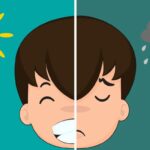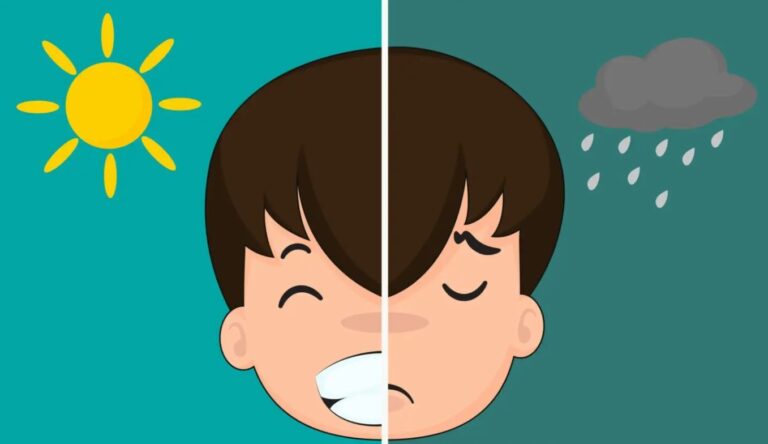Did you know that due to severe depression, 850,000 deaths happen every year from suicide?
Not only depression but several other mental health conditions (like anxiety, depression, PTSD, or bipolar disorder) need immediate medical attention to prevent complications and give stability to live a better life.
It is important to know that you’re not alone, and treatment options are available.
One of them is urgent mental health care centers.
“Mental health is just as important as physical health, and urgent care services should reflect that.” – Dr. Jennifer Contarino, Psychiatrist
Immediate Medical Attention
Mental urgent care is the clinical service for patients who need immediate medical attention for their mental health condition.
It provides short-term treatment such as mental health screening, and referral services, to improve the current symptoms and gives long-term treatment and tips to manage your condition.
Their main aim is to make patients recover and maintain stability in their lives.
“Early intervention in mental health crises can significantly improve outcomes and reduce the likelihood of long-term issues.” – Dr. Sarah Johnson, Clinical Psychologist
When Do You Need It And What You Should Expect?
There are some signs that you need urgent mental health care from a professional mental health doctor. It includes many conditions.
Unbearable Stress
Stress is a normal body response to anything that may feel threatening. In the stress response, our body activates the flight-or-fight mechanism.
Stress can be caused by major life changes such as divorce, chronic medical conditions, work-related pressure, and financial issues.
However, as this stress becomes more severe and consistent it can negatively affect your physical health and cause symptoms such as headaches.
In-person urgent care providers can give medications, including a “migraine cocktail”—a combination of shots to treat migraine pain.
These vary, but generally include a high-dose non-steroidal anti-inflammatory drug (NSAID), and an anti-nausea medication.
Gastrointestinal Issues
Anxiety and depressive disorders are associated with both IBS and UC.
The non-specific association between these psychological and gastrointestinal disorders could suggest that chronic gastrointestinal illness might affect psychosocial behavior.
Anxiety mostly occurs from a stressful event that resolves over time.
However, if you develop an anxiety disorder, then it causes repetitive worry even when the threat is no longer present and makes you unable to function normally.
That’s why if your anxiety is making you weak then you should urgently help to prevent its complications.
Muscle Pain
This phenomenon is called psychogenic pain, and it occurs when your pain is related to underlying psychological, emotional, or behavioral factors.
Physical symptoms are common in depression, and vague aches and pain are often the presenting symptoms of depression.
These symptoms include chronic joint pain, limb pain, back pain, gastrointestinal problems, tiredness, sleep disturbances, psychomotor activity changes, and appetite changes.
Weaken Immune System
Stress and depression also modulate the production of hormones such as adrenaline, corticoids, and catecholamine which in turn influence the immune system (Leonard, 2010).
It has been reported that stress, depression, and inflammation can activate and modify cytokine homeostasis (Kiecolt-Glaser et al., 2003).
Sleep Issues
These problems are highly prevalent among Medicaid patients, and are associated with greater inpatient and emergency mental health service use.
More careful monitoring and management of sleep problems in this patient population would address a common clinical need and might also help to reduce costly service use.
Certain Hormonal Imbalances
Examples of hormonal imbalances that affect mental health include: Thyroid conditions, like hypothyroidism (too little thyroid hormone), which is usually linked to low mood or depression, or hyperthyroidism (too much thyroid hormone), which is usually linked to irritability and anxiety.
Estrogen plays a role in augmenting feelings of anxiety, so high levels of estrogen can increase or lead to the development of OCD symptoms.
Conversely, progesterone tends to inhibit anxiety, so a deficiency in that might lead to similar effects on OCD symptomatology.
Over time, these symptoms may lead to chronic conditions such as manic depression, obesity, type 2 diabetes, sleep apnea, etc. So, prolonged stress must be addressed immediately to avoid these complications.
“We need to prioritize mental health in urgent care settings to ensure that individuals receive timely and appropriate interventions.” – Mike Thompson, Mental Health Advocate
Emotional Eating
It is a pattern of eating where people use food to help them deal with stressful situations. Some individuals may refer to this behavior as “stress eating”.
Many people experience emotional eating at one time or another. It could show itself as eating a bag of chips when bored or eating a chocolate bar after a difficult day at work.
However, when emotional eating happens frequently or becomes the main way a person deals with their emotions, then their life, health, happiness, and weight can be negatively affected.
Manic Depression
Bipolar disorder, formerly called manic depression, is a mental health condition that causes extreme mood swings that include emotional highs (mania or hypomania) and lows (depression).
When you become depressed, you may feel sad or hopeless and lose interest or pleasure in most activities.
When your mood shifts to mania or hypomania (less extreme than mania), you may feel euphoric, full of energy or unusually irritable.
These mood swings can affect sleep, energy, activity, judgment, behavior and the ability to think clearly.
Although bipolar disorder is a lifelong condition, you can manage your mood swings and other symptoms by following a treatment plan.
In most cases, bipolar disorder is treated with medications and psychological counseling (psychotherapy).
Stigma
So, what exactly is stigma? In 1963, a Canadian sociologist named Erving Goffman identified this social concept, describing the term as a “situation of the individual who is disqualified from full social acceptance” due to an attribute that an individual has.
In 2001, researchers expanded this theory of stigma to include an interplay with cultural beliefs, isolation, loss of social status, and discriminatory experiences.
Today, stigma is commonly understood as a negative set of beliefs or attitudes that result in discrimination.
Recently, there has been progress in identifying and combating the stigma surrounding obesity.
Despite advancements in our understanding of GI conditions, research is lagging on the effects of these illness-related stigmas.
According to the National Institute of Mental Health, nearly one in five adults in the United States lives with a mental illness, highlighting the importance of accessible mental health care services.
FAQ
References
1. Fitzpatrick M. Stigma. British Journal of General Practice. 2008. Apr 1;58(549):294.
2. Link BG, Phelan J. Conceptualizing stigma. Ann Rev Sociology. 2001;27:363-821.
3. Leonard B. E. (2010). The concept of depression as a dysfunction of the immune system. Curr. Immunol. Rev. 6 205–212. 10.2174/157339510791823835 [PMC free article] [PubMed] [CrossRef] [Google Scholar] [Ref list]
4. Kiecolt-Glaser J. K., Preacher K. J., MacCallum R. C., Atkinson C., Malarkey W. B., Glaser R. (2003). Chronic stress and age-related increases in the proinflammatory cytokine IL-6. Proc. Natl. Acad. Sci. U.S.A. 100 9090–9095. 10.1073/pnas.1531903100 [PMC free article] [PubMed] [CrossRef] [Google Scholar] [Ref list]
Related Posts:
- What to Expect in Mental Health Treatment? Find Your…
- The Importance of Discussing Men’s Mental Health
- How Mental Health Counseling Helps with Anxiety -…
- Probiotics and Mental Health - The Gut-Brain Connection
- What Is Depression? Causes, Symptoms, and Treatment
- What is Schizophrenia? Causes, Symptoms, and Treatment


















